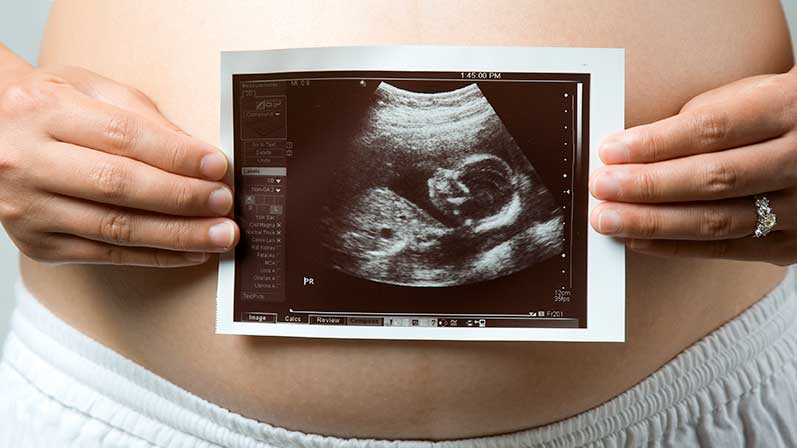Can You Take Vicodin While Pregnant?
While there are some circumstances when taking Vicodin during pregnancy is necessary, most of the time it’s not considered safe. Vicodin use while pregnant can lead to a number of issues, including birth defects, miscarriage, and even maternal death.

Whether the use of opioids by pregnant women is safe or not can depend on a variety of factors. However, when Vicodin is abused or taken in higher doses, it can increase the risk of certain dangerous effects for the mother and baby.
Vicodin is the brand name for the combination of hydrocodone and acetaminophen. It’s considered a prescription opioid medication and is typically used to treat chronic pain. It works by binding to the opioid receptors in the brain and changes how the body responds to pain.
Vicodin is classified as a Schedule II controlled substance by the DEA and FDA. This means it has a high potential for abuse and can lead to dependence and addiction.
Potential Risks Of Vicodin Drug Use During Pregnancy
Lots of risks can come with taking Vicodin while pregnant. However, Vicodin isn’t the only opioid that can be dangerous during pregnancy. Oxycodone, codeine, and fentanyl use during pregnancy is dangerous as well.
Unfortunately, according to the Centers for Disease Control and Prevention (CDC), the number of women diagnosed with opioid addiction at delivery increased by 131% between 2010 and 2017.
Some of the risks of using Vicodin while pregnant include:
Neonatal Abstinence Syndrome
One of the major issues that occur when opioid pain medications are taken during pregnancy is opioid neonatal abstinence syndrome (NAS).
NAS occurs when the baby builds up an opioid dependence while in the womb. When the baby is born and no longer has access to the opioid, they can go into withdrawal.
Signs and symptoms of NAS include:
- tremors
- irritability
- sleep problems
- fever
- seizures
- yawning
- excessive crying
- poor feeding
- loose stools
- low birth weight
Even if you take Vicodin as directed by your health care provider, the baby can still have an increased risk of NAS.
Birth Defects
Birth defects are also a serious concern when opioid painkillers like Vicodin are abused during pregnancy. The baby could be born with defects or malformations in the brain, spine, and spinal cord. It increases the risk of both spina bifida and congenital heart defects.
The baby could also have a defect in the abdomen called gastroschisis. It involves the intestine sticking out outside the body.
Vicodin use during pregnancy can also cause stunted growth and low birth weight.
Miscarriage
There is also a risk to the life of the fetus when Vicodin is used during pregnancy. The drug can cause negative birth outcomes like a miscarriage. It can increase the risk of stillbirth after 20 weeks or more.
Beyond that, Vicodin can also lead to preterm birth before 37 weeks.
Maternal Death
Opioid abuse can quickly turn into opioid addiction which can be life-threatening. Untreated opioid addiction can lead to a fatal overdose. If the mother is abusing opioids while pregnant, she could end up dying from an overdose.
However, Vicodin abuse and overdose is not the only thing that can lead to maternal death. A placental abruption, which is when the placenta pulls away from the wall of the uterus and causes a large amount of blood loss, can also lead to the death of the mother and the baby.
Possible Risks Of Vicodin Use During Breastfeeding
After the birth of the baby, they are still at risk. If the mother is struggling with a substance use disorder related to Vicodin while breastfeeding, the baby can still ingest the drug through the breast milk. Because of this, it’s not recommended to use Vicodin while breastfeeding.
When the baby ingests Vicodin this way, you may notice them experiencing severe drowsiness and having trouble feeding.
While your healthcare provider may advise the use of Vicodin during breastfeeding, you should know that when you stop taking the drug or when your baby stops breastfeeding, your baby could go into withdrawal.
Before you stop, you should talk to your doctor about safely weaning your baby off of the drug.
Vicodin Use Disorder & Pregnancy
If you’re struggling with Vicodin addiction, there are several steps you can take to help you quit in a way that’s safe for both you and your baby.
The first step is to not stop taking opioids all of a sudden. That can lead to severe withdrawal symptoms that could hurt you and the baby.
Supervised addiction treatment is recommended and medication-assisted treatment (MAT) is what’s often used. MAT involves taking a specific medication that reduces cravings and withdrawal symptoms and participating in therapy. The medication is usually methadone or buprenorphine.
If you or a loved one are struggling with opioid use disorder or opioid drug abuse and are pregnant, our experienced team at Ohio Recovery Center is here to help.
We offer a wide variety of treatment options including detox, inpatient drug rehab, medication-assisted treatment, and aftercare. For more information, please call our helpline today.
- Centers for Disease Control and Prevention (CDC) https://www.cdc.gov/pregnancy/opioids/basics.html
- Illinois Department of Public Health https://dph.illinois.gov/content/dam/soi/en/web/idph/files/publications/prescription-pain-medicine-2-page-053118.pdf
- March of Dimes https://www.marchofdimes.org/find-support/topics/pregnancy/prescription-opioids-during-pregnancy
- National Library of Medicine: MedlinePlus https://medlineplus.gov/pregnancyandopioids.html#:~:text=Taking%20opioids%20during%20pregnancy%20can,brain%2C%20spine%2C%20or%20spinal%20cord
- University of Texas Southwestern Medical Center https://utswmed.org/medblog/opioid-use-pregnancy/

